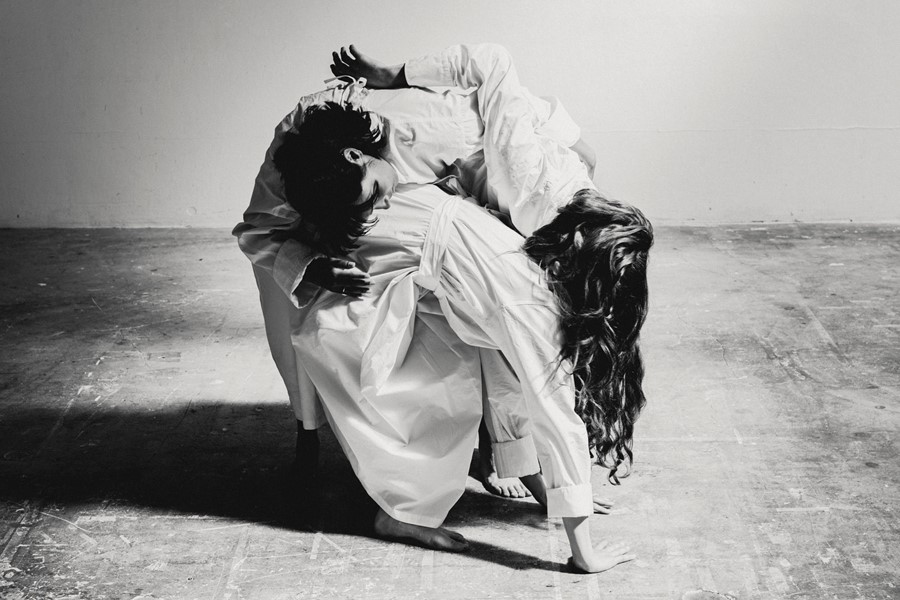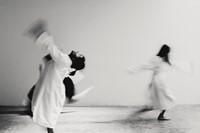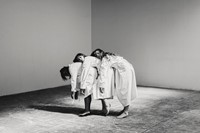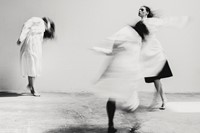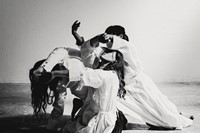The London-based artist captures dancers for his latest project, experimenting with texture, movement and shadow
Paul Phung is known for his enigmatic black and white photographs. The London-based artist primarily captures people – often in motion, and often in physical contact with others – creating images alive with “textures, melancholic moods, shapes and silhouettes.”
His latest photo series, titled Sisterhood, follows the same monochromatic aesthetic. In it, we see a small group of women dance, jump and embrace, cavorting into and around each other’s space. “Sisterhood is ultimately a celebration of the support and intuitive bond between all women,” the photographer tells AnOther. Partly inspired by lockdown, the images are a showcase of “the inseparable ties between three old friends, reunited after a long duration of pandemic enforced separation.”
For Phung, the project feels personal – as well as being a celebration of women reunited, it was also his first opportunity to shoot, on a real set, since the pandemic began. For the majority of last year, he had been forced to shoot through screens and video calls, which made for an uncanny work experience. “I felt as though I was not in full control of the shoot nor of the work I was creating,” he says. In Sisterhood, however, he got to vicariously express his newfound freedom through his subjects, as they reconnected on a real-life film set.
“Sisterhood is a celebration of intimacy, rekindled connections and timeless bonds formed long before a time of distance,” Phung explains. “It focuses on the reconnection of their natural bond. Unforgotten feelings, movements and touch become reignited, and familiarity through embrace sparks a sense of happiness and joy in having the ability to once again dance together.”
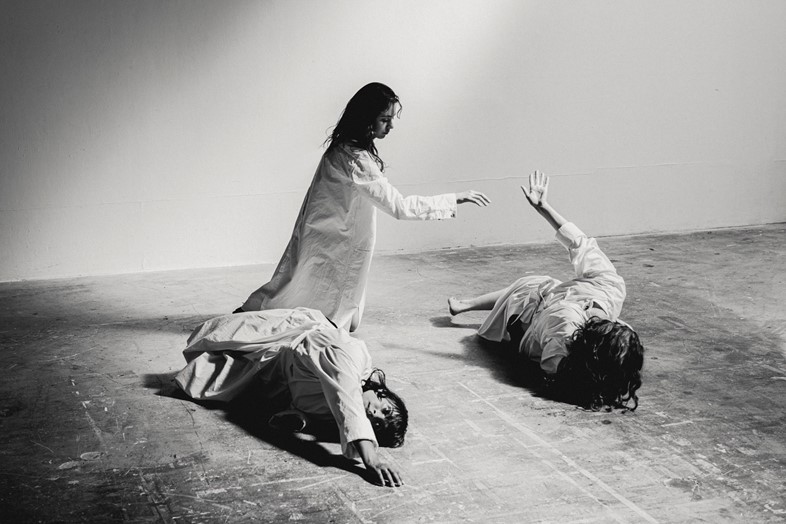
The subjects of the Sisterhood shoot are three dancers: Lesya Tyminska (also the choreographer) and Imogen Alvares and Ella Pileggi. It was a natural collaboration for Phung, who has been exploring the world of dance – “as a personal study on movement” – for the last five years. “When the restrictions were finally lifted, it was a magical moment to carry [this study] on,” says Phung. “Dance has a very special way of telling stories without words. Regardless of our understanding of dance, the intimacy and touch is something I believe we can all relate to, and can hold different meanings depending on the emotional state of the beholder.”
Phung also worked with Omar Afridi, who designed all the clothes, and Charlie Noon, who has helped create an accompanying newsprint project. “This Sisterhood series has highlighted a number of things to me,” he adds, finally. “It’s not only the reconnection to my work. It also acts as a testament to the strength of the bonds between friends and family.”
